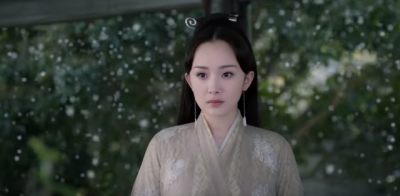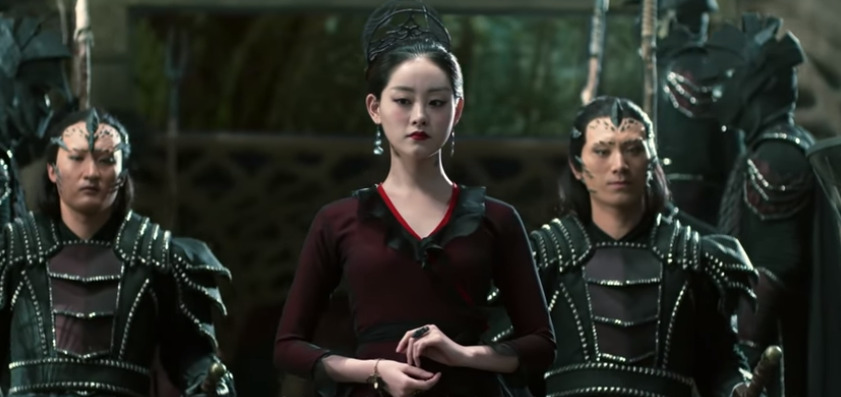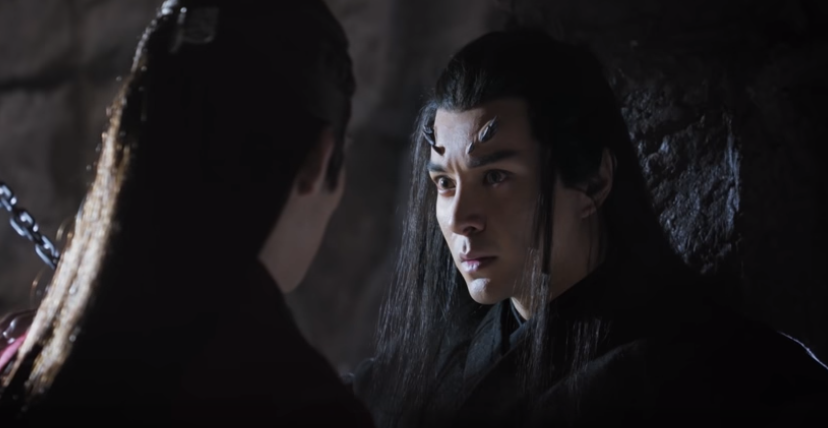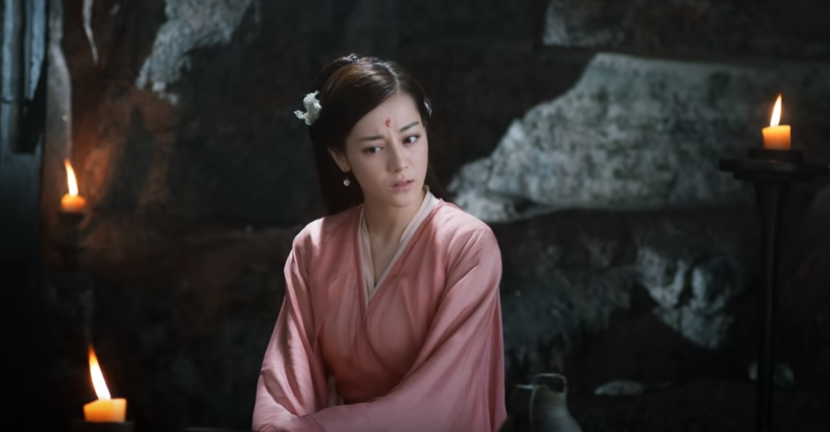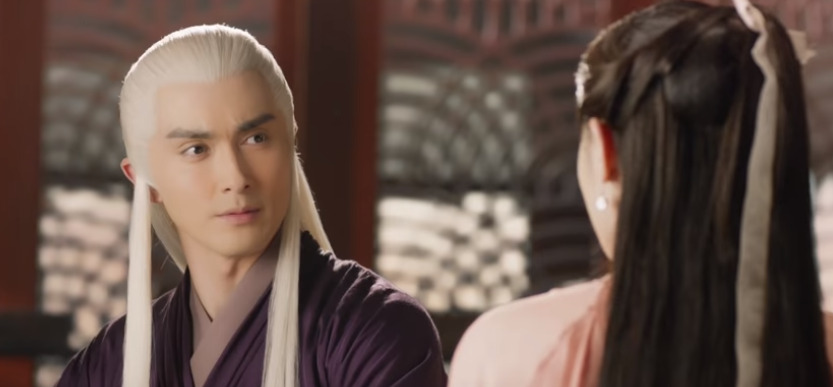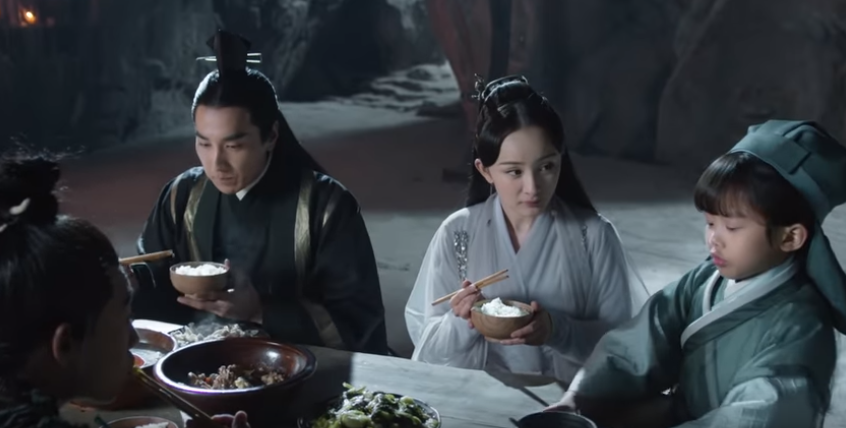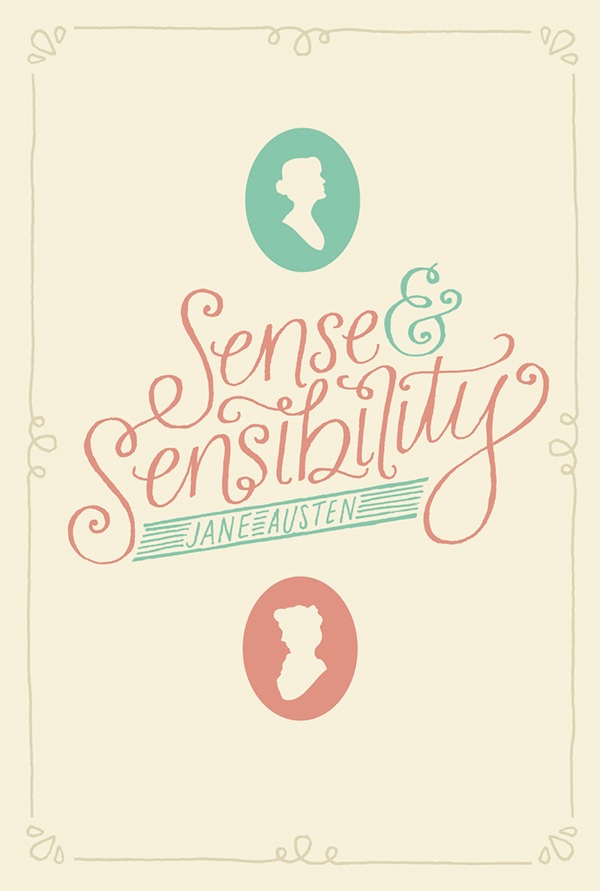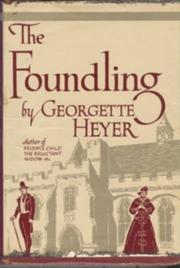Not only am I posting reviews of the Narnia books at very irregular intervals, I'm reviewing them out of order. Oh well, at least it isn't essential to read them all in order.
The Lion, the Witch and the Wardrobe is the first-written and best-known of the Narnia series, though chronologically it's the second book. It was published in 1950 and has since been adapted into two TV series, an animated film, at least one radio version, and a live-action film.
I'm pretty sure everyone knows the plot. Wardrobe leads to a magical land, Lucy meets a faun, there's an evil witch, etc. But just knowing the plot is nothing compared to the magic of reading the book and following Lucy into Narnia for the first time. Knowing there's an evil witch doesn't make it any less frightening when she turns people to stone. And just knowing there's a talking lion is nowhere near as awe-inspiring as Aslan's first appearance.
I read the entire Narnia series multiple times as a child, and I still read them now I'm (supposedly!) an adult. No matter how many times I go back to this book, it never loses any of its magic. From Lucy's amazement at the forest in the wardrobe, to Lucy and Susan crying beside Aslan's body, to Aslan's resurrection, the Witch's defeat, and the children's coronation, this book manages to draw the reader in to experience everything along with the characters. Not many children's books can do that with such skill. I think that's why the Narnia books are still so popular. Many books try to fulfill the reader's wish to see another world. But few of them manage to do it as well as The Lion, the Witch and the Wardrobe.
Especially interesting is how the book portrays Edmund's change from a bratty bully, to a (not entirely willing) traitor, to a hero and a king. Never mind children's books; very few books aimed at teenagers or adults manage to show such convincing character development. Or such overall excellent writing.
Is it available online?: Not as far as I know.
Rating: 10/10.
Reviews of books, period dramas, and a few other things. Updates every Sunday and Wednesday.
Wednesday, 27 February 2019
Sunday, 24 February 2019
Review: Ten Miles of Peach Blossoms
I'm going to try to review this series without too much excited squealing, but it's pretty hard when the main characters are being so absolutely adorable together 😍😍😍
Ten Miles of Peach Blossoms (三生三世十里桃花 in Chinese and Sān Shēng Sān Shì Shí Lǐ Táo Huā in transliteration, literally "Three Lives, Three Worlds, Ten Miles of Peach Blossoms") is a 2017 series based on a novel of the same name by Tang Qi. The novel has also been adapted into a film and at least one other TV series, and this adaptation will be followed by a sequel series later in 2019.
Confusingly, the Wikipedia article for this series gives it the title Eternal Love -- which is the name of a completely different Chinese series. This caused no end of headaches when I was trying to watch this series but kept finding episodes of the other one. Why on earth did they do that?
I didn't recognise any actors, so I'll go straight to the plot.
The main character is Bai Qian, a Fox Princess (it makes sense in context) who goes to study at Kunlun Mountain. Only trouble is, Kunlun Mountain doesn't accept female disciples. So she dresses up as a boy. Her teacher, Mo Yuan, sees through her disguise immediately. Her fellow disciples don't. Then Mo Yuan (apparently) dies in a fight with the Ghost King, and Bai Qian goes back to her kingdom.
A series of unfortunate events later, she meets Ye Hua, Crown Prince of the Nine Heavens, and they fall in love. Things immediately start to go wrong. Bai Qian has lost her memories, Ye Hua thinks she's only a mortal, and another woman, Su Jin, is obsessed with Ye Hua and does her best to ruin Bai Qian's life. It only gets more complicated after that.
From the minute Bai Qian and Ye Hua meet, it's obvious they're perfect for each other. They're just so sweet and adorable and-- Wait, I was trying to avoid excited squealing. Ahem. Anyway, Bai Qian and Ye Hua are the best couple ever and I will fight anyone who says otherwise. I couldn't believe it when the series (SPOILER!) apparently killed Ye Hua. But then it turned out all right, and they get their happily ever after 😍
I've seen many characters I dislike, and plenty that I hate. But Su Jin is one of the few characters I absolutely despise. She just won't get the hint that Ye Hua doesn't like her, and she's directly responsible for Bai Qian's misery and attempted suicide. I spent the whole series hoping Su Jin would die. Sadly, I was disappointed. But at least she gets some punishment for her actions.
On the subject of characters gone mad because of unrequited love, there's the more sympathetic Xuan Nu. Her jealousy of Bai Qian leads to her marrying a man who doesn't love her, and then she goes to increasingly insane lengths to revive her dead child. I was torn between being pitying her and being amazed at how crazy she was. Then there's Xuan Nu's husband, Li Jing, who's just pathetic. The man has the personality of a brick wall and the morals of an alley-cat. I hoped his more evil but more interesting half-brother Li Yuan would defeat him. But instead Li Yuan dies about half-way through the series, and we're stuck with Li Jing being incredibly boring until he finally dies. Yawn.
Another incredibly boring part of the series is the Feng Jiu/Dijun subplot. What the Dickens was the point of that? They couldn't be together, their mortal marriage (or whatever that was) had no effect on the rest of the series, and they just plain weren't interesting or even likeable. It got to the point that I skipped forward every time they appeared.
Overall, though, the series is very good. It has some beautiful costumes and scenery, and of course it has the adorableness of Bai Qian and Ye Hua... and their equally adorable son, A Li, the cutest little kid I've seen for ages. And unlike the children in some TV series (and films, and books...), he manages to be cute and funny without ever being diabetes-inducing.
So I think I can safely say the good in this series outweighs the bad 😊
Is it available online?: Yes, on YouTube with English subtitles.
Rating: 9/10.
Confusingly, the Wikipedia article for this series gives it the title Eternal Love -- which is the name of a completely different Chinese series. This caused no end of headaches when I was trying to watch this series but kept finding episodes of the other one. Why on earth did they do that?
I didn't recognise any actors, so I'll go straight to the plot.
The main character is Bai Qian, a Fox Princess (it makes sense in context) who goes to study at Kunlun Mountain. Only trouble is, Kunlun Mountain doesn't accept female disciples. So she dresses up as a boy. Her teacher, Mo Yuan, sees through her disguise immediately. Her fellow disciples don't. Then Mo Yuan (apparently) dies in a fight with the Ghost King, and Bai Qian goes back to her kingdom.
Bai Qian
A series of unfortunate events later, she meets Ye Hua, Crown Prince of the Nine Heavens, and they fall in love. Things immediately start to go wrong. Bai Qian has lost her memories, Ye Hua thinks she's only a mortal, and another woman, Su Jin, is obsessed with Ye Hua and does her best to ruin Bai Qian's life. It only gets more complicated after that.
Ye Hua
From the minute Bai Qian and Ye Hua meet, it's obvious they're perfect for each other. They're just so sweet and adorable and-- Wait, I was trying to avoid excited squealing. Ahem. Anyway, Bai Qian and Ye Hua are the best couple ever and I will fight anyone who says otherwise. I couldn't believe it when the series (SPOILER!) apparently killed Ye Hua. But then it turned out all right, and they get their happily ever after 😍
I've seen many characters I dislike, and plenty that I hate. But Su Jin is one of the few characters I absolutely despise. She just won't get the hint that Ye Hua doesn't like her, and she's directly responsible for Bai Qian's misery and attempted suicide. I spent the whole series hoping Su Jin would die. Sadly, I was disappointed. But at least she gets some punishment for her actions.
Su Jin
On the subject of characters gone mad because of unrequited love, there's the more sympathetic Xuan Nu. Her jealousy of Bai Qian leads to her marrying a man who doesn't love her, and then she goes to increasingly insane lengths to revive her dead child. I was torn between being pitying her and being amazed at how crazy she was. Then there's Xuan Nu's husband, Li Jing, who's just pathetic. The man has the personality of a brick wall and the morals of an alley-cat. I hoped his more evil but more interesting half-brother Li Yuan would defeat him. But instead Li Yuan dies about half-way through the series, and we're stuck with Li Jing being incredibly boring until he finally dies. Yawn.
Xuan Nu
Li Jing
Li Yuan
Another incredibly boring part of the series is the Feng Jiu/Dijun subplot. What the Dickens was the point of that? They couldn't be together, their mortal marriage (or whatever that was) had no effect on the rest of the series, and they just plain weren't interesting or even likeable. It got to the point that I skipped forward every time they appeared.
Feng Jiu
Dijun
Overall, though, the series is very good. It has some beautiful costumes and scenery, and of course it has the adorableness of Bai Qian and Ye Hua... and their equally adorable son, A Li, the cutest little kid I've seen for ages. And unlike the children in some TV series (and films, and books...), he manages to be cute and funny without ever being diabetes-inducing.
Ye Hua, Bai Qian and A Li
So I think I can safely say the good in this series outweighs the bad 😊
Is it available online?: Yes, on YouTube with English subtitles.
Rating: 9/10.
Wednesday, 20 February 2019
Review: A Damsel in Distress (novel)
I recently discovered a website called DailyLit. It emails daily installments of novels to its users, and it has a wide range of (mostly free) novels to choose from. I selected this one to start with because it's P. G. Wodehouse, and therefore guaranteed to be hilarious.
A Damsel in Distress was first published in 1919. It involves a case of mistaken identity, a match-making stepmother, an earl who prefers gardening to writing his family history, a walk through a ditch, and many more amusing characters and incidents. It's been adapted to film at least twice, and one of the film adaptations was turned into a stage musical in 2015.
P. G. Wodehouse's books are easy to recognise because so many of them use similar plots. Unlike many authors, he managed to turn this into part of the charm of his writing. It doesn't matter that basically every book has the same cast of characters with names and roles changed; the stories are still amusing and still manage to be original.
A Damsel in Distress revolves around the chaos that ensues when George Bevan falls in love at first sight with Maud, daughter of Lord Marshmoreton. Maud's already in love with a man she hasn't seen for over a year. Her aunt wants her to marry her step-cousin Reggie, who's in love with Alice, Maud's father's secretary. Maud's brother Percy mistakes George for the man she met a year ago, and sets out to foil their "relationship". As if that wasn't complicated enough, the servants have a betting pool on who Maud will marry, and they'll do anything, even destroy letters, to get her to marry whichever man they're betting on.
It's exactly as hilarious as it sounds. I couldn't even wait for the daily installments to arrive; I went to Gutenberg and read the rest of the book there. An hour later I'd finished it, and I had a stitch in my side from laughing so hard. The misunderstandings and tangled relationships are funny enough on their own, but when described with some of the best humourous writing in the English language, they become absolutely priceless. Take, for example, this excerpt about Percy's walk through a ditch:
There is nothing half-hearted about these ditches which accompany English country roads. They know they are intended to be ditches, not mere furrows, and they behave as such. The one that sheltered Lord Belpher was so deep that only his head and neck protruded above the level of the road, and so dirty that a bare twenty yards of travel was sufficient to coat him with mud. Rain, once fallen, is reluctant to leave the English ditch. It nestles inside it for weeks, forming a rich, oatmeal-like substance which has to be stirred to be believed. Percy stirred it. He churned it. He ploughed and sloshed through it. The mud stuck to him like a brother.
And this is only one short paragraph in a book full of hilarity. To quote Cranford, "I defy you not to roar."
If you need a book guaranteed to cheer you up, or if you just want to read something light and amusing, I definitely recommend this book!
Is it available online?: Yes, on Gutenberg as well as DailyLit.
Rating: 10/10.
A Damsel in Distress was first published in 1919. It involves a case of mistaken identity, a match-making stepmother, an earl who prefers gardening to writing his family history, a walk through a ditch, and many more amusing characters and incidents. It's been adapted to film at least twice, and one of the film adaptations was turned into a stage musical in 2015.
P. G. Wodehouse's books are easy to recognise because so many of them use similar plots. Unlike many authors, he managed to turn this into part of the charm of his writing. It doesn't matter that basically every book has the same cast of characters with names and roles changed; the stories are still amusing and still manage to be original.
A Damsel in Distress revolves around the chaos that ensues when George Bevan falls in love at first sight with Maud, daughter of Lord Marshmoreton. Maud's already in love with a man she hasn't seen for over a year. Her aunt wants her to marry her step-cousin Reggie, who's in love with Alice, Maud's father's secretary. Maud's brother Percy mistakes George for the man she met a year ago, and sets out to foil their "relationship". As if that wasn't complicated enough, the servants have a betting pool on who Maud will marry, and they'll do anything, even destroy letters, to get her to marry whichever man they're betting on.
It's exactly as hilarious as it sounds. I couldn't even wait for the daily installments to arrive; I went to Gutenberg and read the rest of the book there. An hour later I'd finished it, and I had a stitch in my side from laughing so hard. The misunderstandings and tangled relationships are funny enough on their own, but when described with some of the best humourous writing in the English language, they become absolutely priceless. Take, for example, this excerpt about Percy's walk through a ditch:
There is nothing half-hearted about these ditches which accompany English country roads. They know they are intended to be ditches, not mere furrows, and they behave as such. The one that sheltered Lord Belpher was so deep that only his head and neck protruded above the level of the road, and so dirty that a bare twenty yards of travel was sufficient to coat him with mud. Rain, once fallen, is reluctant to leave the English ditch. It nestles inside it for weeks, forming a rich, oatmeal-like substance which has to be stirred to be believed. Percy stirred it. He churned it. He ploughed and sloshed through it. The mud stuck to him like a brother.
And this is only one short paragraph in a book full of hilarity. To quote Cranford, "I defy you not to roar."
If you need a book guaranteed to cheer you up, or if you just want to read something light and amusing, I definitely recommend this book!
Is it available online?: Yes, on Gutenberg as well as DailyLit.
Rating: 10/10.
Sunday, 17 February 2019
Review: Sense and Sensibility (novel)
An author's first novel is never as good as their later works. But it usually foreshadows what they'll be capable of writing later in their career, and in many cases a first novel is pretty good in its own right.
Sense and Sensibility is Jane Austen's first novel, published in 1811. It's about two sisters, Elinor and Marianne, and how they deal with trials and heartbreak in their very different ways.
Jane Austen had a wonderful sense of humour, and she uses it liberally through the book. Her sarcastic asides about the cottage, the Ferrars' behaviour, and Marianne's discovery that a sixteen-year-old's opinions are not fixed forever are highly amusing -- or perhaps I should say excessively diverting. Seems more Austen-ish 😊
It becomes clear very early in the book that Marianne is a childish, melodramatic idiot while Elinor is much more sensible. It's not surprising that each sister falls in love with a man whose personality suits hers. But things quickly go wrong when Willoughby, the man Marianne loves, mysteriously leaves without a word of explanation, and Elinor learns that Edward, the man she loves, is engaged to another woman. Added into this mess is the well-meaning but gossipy Mrs. Jennings, the arrogant and spiteful Lucy Steele, and Colonel Brandon, who's secretly in love with Marianne but who Mrs. Jennings thinks is in love with Elinor.
Marianne is one of those characters who makes a fool of herself with everything she does. I spent most of the book sympathising much more with Elinor. Even after Marianne grows up (slightly) and learns some more sense, I still don't like her as much as Elinor. Willoughby is an absolute scumbag, in spite of Austen's attempts to make him somewhat sympathetic, and Edward doesn't have much personality, so Colonel Brandon is my favourite of the sisters' suitors. But my favourite character in the whole book has to be Mrs. Jennings. She's such a comical gossip, and yet she has such a good heart, that it's impossible not to like her even while laughing at her. I love the scene where she thinks the colonel is proposing to Elinor, but he's actually offering Edward a place to live 😄
Sense and Sensibility isn't quite up to the level of Pride and Prejudice or Emma, but it's a good book with some sweet and amusing moments. I'd definitely recommend it to anyone who hasn't read it yet!
Is it available online?: Yes, on Gutenberg.
Rating: 8/10.
Sense and Sensibility is Jane Austen's first novel, published in 1811. It's about two sisters, Elinor and Marianne, and how they deal with trials and heartbreak in their very different ways.
Jane Austen had a wonderful sense of humour, and she uses it liberally through the book. Her sarcastic asides about the cottage, the Ferrars' behaviour, and Marianne's discovery that a sixteen-year-old's opinions are not fixed forever are highly amusing -- or perhaps I should say excessively diverting. Seems more Austen-ish 😊
It becomes clear very early in the book that Marianne is a childish, melodramatic idiot while Elinor is much more sensible. It's not surprising that each sister falls in love with a man whose personality suits hers. But things quickly go wrong when Willoughby, the man Marianne loves, mysteriously leaves without a word of explanation, and Elinor learns that Edward, the man she loves, is engaged to another woman. Added into this mess is the well-meaning but gossipy Mrs. Jennings, the arrogant and spiteful Lucy Steele, and Colonel Brandon, who's secretly in love with Marianne but who Mrs. Jennings thinks is in love with Elinor.
Marianne is one of those characters who makes a fool of herself with everything she does. I spent most of the book sympathising much more with Elinor. Even after Marianne grows up (slightly) and learns some more sense, I still don't like her as much as Elinor. Willoughby is an absolute scumbag, in spite of Austen's attempts to make him somewhat sympathetic, and Edward doesn't have much personality, so Colonel Brandon is my favourite of the sisters' suitors. But my favourite character in the whole book has to be Mrs. Jennings. She's such a comical gossip, and yet she has such a good heart, that it's impossible not to like her even while laughing at her. I love the scene where she thinks the colonel is proposing to Elinor, but he's actually offering Edward a place to live 😄
Sense and Sensibility isn't quite up to the level of Pride and Prejudice or Emma, but it's a good book with some sweet and amusing moments. I'd definitely recommend it to anyone who hasn't read it yet!
Is it available online?: Yes, on Gutenberg.
Rating: 8/10.
Wednesday, 13 February 2019
Review: Wives and Daughters (novel)
Finally finished reading this novel, so I thought it was time to review it 😃
Wives and Daughters is Elizabeth Gaskell's last novel. She began writing it in 1864, and died before finishing it. It was published posthumously, still unfinished, which makes for an abrupt and unsatisfying ending.
The series sticks very close to the book, and the few changes it did make were mostly for the best. I made a bit of a game of spotting the differences. The final total is far lower than I expected. A few minor characters are removed from the series, a few scenes are missing, and some dialogue is changed, but otherwise the series is more or less an exact adaptation of the book. All the characters are exactly what I expected. Molly is as sweet and well-meaning as ever, Osborne as tragic, Squire Hamley as prejudiced against the French, Cynthia as exasperating, Dr. Gibson as sarcastic, and Mrs. Gibson as ridiculous. The one character who's slightly different is Roger, who's more awkward here, and whose infatuation with Cynthia and growing disillusionment with her receives some more attention.
The Cumnors get a bit more screentime (pagetime?) here than in the series. Lady Harriet is as awesome as her book counterpart, especially when she comes to Molly's rescue after the Mr. Preston business. Her father's attempts at match-making Dr. Gibson and Hyacinth were left out of the series, but they provide a comical scene that I wish had been included. I was surprised to learn Lady Harriet has sisters, but they have virtually no effect on the plot, so it makes sense they were left out.
Mr. Preston is as oily and Wickhamy as ever. (Is Wickhamy a word? Oh well, it is now.) I spent most of his scenes wishing I could reach into the book and slap his smug face. What a pity Mrs. Gaskell didn't give him some comeuppance for his behaviour.
The most disappointing part of the book is its ending. Roger is about to leave for Africa, he and Molly aren't engaged yet... and that's it. The reader is left to wonder what happened. Apparently Mrs. Gaskell said how the novel was supposed to end, but she sadly died before writing it, and no one finished it for her. It's a pity that a summary of her intended ending for the novel isn't included as an afterword or something. Charles Dickens died before finishing The Mystery of Edwin Drood, yet I've seen editions that include his notes for the rest of the novel at the end. Maybe some editions of Wives and Daughters do the same, but sadly mine isn't one of them.
Now, excuse me while I rant about something that's annoyed me since I saw another review call Mrs. Gibson "a clichéd wicked stepmother who abuses Molly". What? Did that reviewer even read the book? True, at first it looks like Mrs. Gibson will be a wicked stepmother, but as the story progresses it becomes clear that she really isn't. She goes to an awful lot of trouble to make sure she treats Molly the same way she treats Cynthia, and even Miss Browning acknowledges she does her best as stepmothers go. She's an idiot who never should have married Dr. Gibson, and her attempts at being fair are ill-advised and ignore what Molly actually wants, but she never abuses Molly! I can't stand her character, but the main problem with Mrs. Gibson is that she's foolish, cold and mercenary. She certainly isn't "a clichéd wicked stepmother".
...Yes, I did just finish a review with a rant in defence of a character I don't even like.
Overall the book is excellent, but I'd advise watching the series first. Then you'll be able to fill in the gaps of what happens after the sudden ending.
Is it available online?: Yes, on Gutenberg.
Rating: 8/10.
Wives and Daughters is Elizabeth Gaskell's last novel. She began writing it in 1864, and died before finishing it. It was published posthumously, still unfinished, which makes for an abrupt and unsatisfying ending.
The series sticks very close to the book, and the few changes it did make were mostly for the best. I made a bit of a game of spotting the differences. The final total is far lower than I expected. A few minor characters are removed from the series, a few scenes are missing, and some dialogue is changed, but otherwise the series is more or less an exact adaptation of the book. All the characters are exactly what I expected. Molly is as sweet and well-meaning as ever, Osborne as tragic, Squire Hamley as prejudiced against the French, Cynthia as exasperating, Dr. Gibson as sarcastic, and Mrs. Gibson as ridiculous. The one character who's slightly different is Roger, who's more awkward here, and whose infatuation with Cynthia and growing disillusionment with her receives some more attention.
The Cumnors get a bit more screentime (pagetime?) here than in the series. Lady Harriet is as awesome as her book counterpart, especially when she comes to Molly's rescue after the Mr. Preston business. Her father's attempts at match-making Dr. Gibson and Hyacinth were left out of the series, but they provide a comical scene that I wish had been included. I was surprised to learn Lady Harriet has sisters, but they have virtually no effect on the plot, so it makes sense they were left out.
Mr. Preston is as oily and Wickhamy as ever. (Is Wickhamy a word? Oh well, it is now.) I spent most of his scenes wishing I could reach into the book and slap his smug face. What a pity Mrs. Gaskell didn't give him some comeuppance for his behaviour.
The most disappointing part of the book is its ending. Roger is about to leave for Africa, he and Molly aren't engaged yet... and that's it. The reader is left to wonder what happened. Apparently Mrs. Gaskell said how the novel was supposed to end, but she sadly died before writing it, and no one finished it for her. It's a pity that a summary of her intended ending for the novel isn't included as an afterword or something. Charles Dickens died before finishing The Mystery of Edwin Drood, yet I've seen editions that include his notes for the rest of the novel at the end. Maybe some editions of Wives and Daughters do the same, but sadly mine isn't one of them.
Now, excuse me while I rant about something that's annoyed me since I saw another review call Mrs. Gibson "a clichéd wicked stepmother who abuses Molly". What? Did that reviewer even read the book? True, at first it looks like Mrs. Gibson will be a wicked stepmother, but as the story progresses it becomes clear that she really isn't. She goes to an awful lot of trouble to make sure she treats Molly the same way she treats Cynthia, and even Miss Browning acknowledges she does her best as stepmothers go. She's an idiot who never should have married Dr. Gibson, and her attempts at being fair are ill-advised and ignore what Molly actually wants, but she never abuses Molly! I can't stand her character, but the main problem with Mrs. Gibson is that she's foolish, cold and mercenary. She certainly isn't "a clichéd wicked stepmother".
...Yes, I did just finish a review with a rant in defence of a character I don't even like.
Overall the book is excellent, but I'd advise watching the series first. Then you'll be able to fill in the gaps of what happens after the sudden ending.
Is it available online?: Yes, on Gutenberg.
Rating: 8/10.
Sunday, 10 February 2019
Review: The Foundling (novel)
One of the best ways I've found for discovering the works of authors I haven't read yet is to browse through a charity shop's selection of books. The obvious drawback to this is that there tends to be a very limited or non-existent range of some author's books. But on the bright side, it means that you might discover a pretty good book without even realising what you've got until you start to read it. Guess how I found this book?
The Foundling is a 1948 novel by Georgette Heyer. I had a vague idea of who Georgette Heyer was before I bought this book. She wrote books set in the Regency, and that was all I knew. This was the first of her works I ever read, but it definitely won't be the last.
The plot revolves around Adolphus Gillespie Ware, the Duke of Sale. (Yes, the hero's name is Adolphus. Thankfully he's usually called Gilly.) His overprotective uncle has arranged for him to marry his childhood friend Harriett. But then Gilly learns that his cousin is being blackmailed, and he goes off incognito to sort this mess out. Unfortunately, along the way he meets Tom, a runaway schoolboy; Belinda, a brainless idiot who's also the pawn of the blackmailer; and Liversedge, the blackmailer himself, who intends to hold Gilly to ransom. And to make things worse, Gilly didn't tell anyone where he was going, and his servants assume something sinister has happened to him...
When I started to read this I was expecting something like Pride and Prejudice, for some reason. No idea why. I quickly discovered that it wasn't. Instead it's more of an adventure novel with a Regency setting.
There are exciting moments -- Gilly burning down the inn, for example. And there are funny moments, like the ever-increasing number of people chasing Gilly, Tom and Belinda. There's some romance, but it's far from the main focus of the plot. Which is a pity, because Harriett is a character I'd love to see more of. And then, of course, there's the ending, where all the problems are solved, Belinda won't be getting involved in any more blackmailing schemes, Gilly's uncle has become slightly less overprotective, and Gilly and Harriett are going to live happily ever after. Aww!
If you want an enjoyable novel with a plot that isn't too complicated, try this book! It's well worth reading.
Is it available online?: Not as far as I know.
Rating: 9/10.
The plot revolves around Adolphus Gillespie Ware, the Duke of Sale. (Yes, the hero's name is Adolphus. Thankfully he's usually called Gilly.) His overprotective uncle has arranged for him to marry his childhood friend Harriett. But then Gilly learns that his cousin is being blackmailed, and he goes off incognito to sort this mess out. Unfortunately, along the way he meets Tom, a runaway schoolboy; Belinda, a brainless idiot who's also the pawn of the blackmailer; and Liversedge, the blackmailer himself, who intends to hold Gilly to ransom. And to make things worse, Gilly didn't tell anyone where he was going, and his servants assume something sinister has happened to him...
When I started to read this I was expecting something like Pride and Prejudice, for some reason. No idea why. I quickly discovered that it wasn't. Instead it's more of an adventure novel with a Regency setting.
There are exciting moments -- Gilly burning down the inn, for example. And there are funny moments, like the ever-increasing number of people chasing Gilly, Tom and Belinda. There's some romance, but it's far from the main focus of the plot. Which is a pity, because Harriett is a character I'd love to see more of. And then, of course, there's the ending, where all the problems are solved, Belinda won't be getting involved in any more blackmailing schemes, Gilly's uncle has become slightly less overprotective, and Gilly and Harriett are going to live happily ever after. Aww!
If you want an enjoyable novel with a plot that isn't too complicated, try this book! It's well worth reading.
Is it available online?: Not as far as I know.
Rating: 9/10.
Wednesday, 6 February 2019
Review: The Prisoner of Zenda (1952)
Well. This film was a surreal experience. I tried to watch it shortly after the 1937 version, didn't like it so I gave up, and only went back to it recently. Turns out my original dislike was more than justified.
On rare occasions someone decides to make a shot-for-shot remake of a previous film, but with different actors. This film is a textbook example of why that's a bad idea.
Recognisable actors:
James Mason (Captain Nemo in 20,000 Leagues Under the Sea) as Rupert (!?)
Deborah Kerr (Anna in The King and I 1956) as Flavia
The film follows the 1937 version almost exactly. But it just demonstrates what a difference a good cast makes to a script.
A decidedly unconvincing Rudolf Rassendyll arrives in Ruritania, makes the acquaintance of a dull Sapt and duller Fritz, meets an even more unconvincing King Rudolf, and has to take the king's place. In the process we meet Michael and Antoinette, who have all the personalities of dishcloths, a truly atrocious Rupert, and a relatively decent Flavia. And not once, in the whole film, is there any of the charm or excitement of the novel or 1937 film.
The whole point of remakes is to adapt a novel in a slightly different way than a previous film, right? Compare the different versions of David Copperfield or Nicholas Nickleby. None of them are exactly the same. They tell the same story, but in their own ways. If they were all carbon copies of each other, there'd be no point in making them at all. So shot-for-shot remakes never work well.
What makes this one so galling is that it could have been at least relatively decent. It's The Prisoner of Zenda! It's a copy of the 1937 film! How could anyone possibly have gone wrong with that?
Obviously, the answer is "easily". None of the actors ever seem comfortable with the characters they're playing. And apparently the director didn't bother to read the book and see how the characters should look. No one remembers that Michael is the younger brother, or that Antoinette is older than him. Rupert is only about twenty-two in the book. He looks twice that here. Book!Rudolf Rassendyll is only in his late twenties/early thirties, but again, he's older here. All right, so the characters' ages are copied from the 1937 film, but their actors were more convincing there. Whoever did the casting has a lot to answer for 😒
Princess Flavia is the best part of this film. She's the only one who remotely resembles their book counterpart in appearance and behaviour. At least someone remembered she's supposed to have red hair. Unfortunately that bit of near-accuracy didn't extend to the two Rudolfs, who are also supposed to have red hair, but points for trying.
On the subject of hair, what on Earth is Rupert's hairstyle? It's not book-accurate, and I sincerely doubt it's historically accurate, either. As for Rupert himself, it should be impossible to turn the story's most interesting character into the most odious. Guess what this film does? Book!Rupert and 1937!Rupert are murderous villains, yes, but they're charming murderous villains. This Rupert is a creep with all the charm of a rattlesnake.
Overall the film is dull, unconvincing, and just plain disappointing.
Is it available online?: I didn't bother to check.
Rating: 1/10.
On rare occasions someone decides to make a shot-for-shot remake of a previous film, but with different actors. This film is a textbook example of why that's a bad idea.
Recognisable actors:
James Mason (Captain Nemo in 20,000 Leagues Under the Sea) as Rupert (!?)
Deborah Kerr (Anna in The King and I 1956) as Flavia
The film follows the 1937 version almost exactly. But it just demonstrates what a difference a good cast makes to a script.
A decidedly unconvincing Rudolf Rassendyll arrives in Ruritania, makes the acquaintance of a dull Sapt and duller Fritz, meets an even more unconvincing King Rudolf, and has to take the king's place. In the process we meet Michael and Antoinette, who have all the personalities of dishcloths, a truly atrocious Rupert, and a relatively decent Flavia. And not once, in the whole film, is there any of the charm or excitement of the novel or 1937 film.
Rudolf Rassendyll
Rupert
Flavia
The whole point of remakes is to adapt a novel in a slightly different way than a previous film, right? Compare the different versions of David Copperfield or Nicholas Nickleby. None of them are exactly the same. They tell the same story, but in their own ways. If they were all carbon copies of each other, there'd be no point in making them at all. So shot-for-shot remakes never work well.
What makes this one so galling is that it could have been at least relatively decent. It's The Prisoner of Zenda! It's a copy of the 1937 film! How could anyone possibly have gone wrong with that?
Obviously, the answer is "easily". None of the actors ever seem comfortable with the characters they're playing. And apparently the director didn't bother to read the book and see how the characters should look. No one remembers that Michael is the younger brother, or that Antoinette is older than him. Rupert is only about twenty-two in the book. He looks twice that here. Book!Rudolf Rassendyll is only in his late twenties/early thirties, but again, he's older here. All right, so the characters' ages are copied from the 1937 film, but their actors were more convincing there. Whoever did the casting has a lot to answer for 😒
Princess Flavia is the best part of this film. She's the only one who remotely resembles their book counterpart in appearance and behaviour. At least someone remembered she's supposed to have red hair. Unfortunately that bit of near-accuracy didn't extend to the two Rudolfs, who are also supposed to have red hair, but points for trying.
On the subject of hair, what on Earth is Rupert's hairstyle? It's not book-accurate, and I sincerely doubt it's historically accurate, either. As for Rupert himself, it should be impossible to turn the story's most interesting character into the most odious. Guess what this film does? Book!Rupert and 1937!Rupert are murderous villains, yes, but they're charming murderous villains. This Rupert is a creep with all the charm of a rattlesnake.
Overall the film is dull, unconvincing, and just plain disappointing.
Is it available online?: I didn't bother to check.
Rating: 1/10.
Sunday, 3 February 2019
Review: Great Expectations (2012)
Would you believe this is the fiftieth review on this blog? (Counting reviews split into two parts as one review, that is.)
For some reason someone decided to make a film of Great Expectations a year after a miniseries was made of it. What's stranger is the BBC was involved in making both versions.
For some reason someone decided to make a film of Great Expectations a year after a miniseries was made of it. What's stranger is the BBC was involved in making both versions.
I vastly prefer the 2011 series' opening to this one. This picture looks like the cover of a thriller novel, not an adaptation of a classic.
Adapting Charles Dickens' novels into films rarely works. They're so long and complicated that you have to cut practically everything except the main plot. So I knew before I watched this that a lot of the book would be missing.
I watched it immediately after the 2011 miniseries, so -- bizarrely -- I found I kept comparing this adaptation to that one instead of to the book. Like my review of the miniseries, this will mostly be a rambling list of things I did or didn't like.
Recognisable actors include:
Helena Bonham Carter (the Fairy Godmother in Cinderella 2015) as Miss Haversham
Holliday Grainger (Anastasia in Cinderella 2015) as Estella
Ralph Fiennes (Voldemort in Harry Potter) as Magwitch
Robbie Coltrane (Hagrid in Harry Potter) as Jaggers
Jason Flemyng (Azazel in X-Men: First Class) as Joe
Jessie Cave (Lavender Brown in Harry Potter) as Biddy
Like all versions of Great Expectations, the story starts with Pip meeting Magwitch. Then he goes to visit Miss Haversham and meets Estella... and Herbert. I don't remember Herbert finding Pip hiding under a carriage in the book, but it makes their fight a little bit more understandable than Herbert just demanding to fight Pip.
The film includes Biddy! I was disappointed the series left her out. And it shows her grandmother's "school", and her teaching Pip to read!
Mr. Jaggers' introduction is odd. Why was he lurking in the shadows watching Estella and Pip? He's supposed to be mysterious and menacing, but not that creepy!
Estella teaching Pip to dance is unexpected, but surprisingly cute for these two. Naturally Miss Haversham decides to ruin everything by telling Pip not to visit any more.
The story jumps forward several years to Jaggers' visit and Pip learning about his great expectations. So off he goes to London. The film depicts London as much dirtier and more chaotic than the series does, with more butchers cutting up pieces of meat and more animal blood (at least, I hope that's animal blood) on the ground.
Like the series, the film shows the crowds of people waiting to see Jaggers. Pip and Wemmick's conversation about the casts of criminals' faces and the criminals' property is both close to the book and a fine example of black comedy.
Pip meets Herbert again, and becomes more and more arrogant now he has his fortune.
Pip is still convinced that Miss Haversham is his benefactor, so he asks Herbert for more information about her. In this version we get a flashback to Miss Haversham's ill-fated wedding, and how she learnt Compeyson had jilted her. I'm not a fan of the way this scene is filmed. It's so blurry and distorted that the characters look like they're seen through a funhouse mirror. Why does "flashback" equate to "blurry" in so many directors' minds? It defeats the purpose if the viewers can't see things clearly.
There's a rather odd scene of Pip and Herbert going to a club where the members are... having a food fight? I don't remember anything like that in the book. But the film atones for that weirdness by including Wemmick's Aged Parent, and their habit of firing a cannon.
Pip visits Miss Haversham and meets Estella, who's now going to London. Why on earth did they have Estella walking on top of barrels? While in a long dress? I spent that whole scene expecting her to trip and fall.
My favourite line in the film is Mr. Jaggers' remark when he sees the amount of bills Pip has run up. "I suspected you would go wrong, Pip, but really, you are excelling yourself." That perfectly describes Pip's behaviour in London.
Estella gets engaged to Drummle, in spite of Pip's attempts to make her see reason. His "what do you think you're doing?" speech to her in the garden is the only time in the film he's shown any common sense. But Estella -- who has seen how Drummle behaves towards her -- doesn't listen. What an idiot.
After this Pip goes home -- to a house that's much grander in the film than in the book -- to find Magwitch. This scene is surprisingly eerie, even more than in the book. Pip doesn't cope well with learning the truth about his benefactor.
Miss Haversham's death is gruesome in all versions, but this one goes further and shows us glimpses of the aftermath *shudders*
Pip and Herbert try to get Magwitch out of England. Unfortunately, Compeyson and the police follow them. The film has a frightening scene of the steamship wheel running over Magwitch and Compeyson, and smashing the boat that Pip is in. Then there's Magwitch's death, which is just as sad here as in the series.
The film includes Joe paying Pip's debts and staying with him while he's ill! It improves on the series in that, at least. And then there's the final conversation between Pip and Estella. I'm still far from convinced that they would be happy if they married, but I get the impression that the film's version of them wouldn't be completely unhappy. That's probably the closest Great Expectations will ever get to a relatively cheerful ending.
Overall, the film is a pretty decent adaptation that in some ways is more faithful to the book than the series. But at the same time it's still rushed and trying to adapt a reallllly long book into two hours. It has its good moments and it has its flaws, but overall I think the good moments outnumber the flaws.
Is it available online?: No, I don't think so.
Rating: 6/10.
I watched it immediately after the 2011 miniseries, so -- bizarrely -- I found I kept comparing this adaptation to that one instead of to the book. Like my review of the miniseries, this will mostly be a rambling list of things I did or didn't like.
Recognisable actors include:
Helena Bonham Carter (the Fairy Godmother in Cinderella 2015) as Miss Haversham
Holliday Grainger (Anastasia in Cinderella 2015) as Estella
Ralph Fiennes (Voldemort in Harry Potter) as Magwitch
Robbie Coltrane (Hagrid in Harry Potter) as Jaggers
Jason Flemyng (Azazel in X-Men: First Class) as Joe
Jessie Cave (Lavender Brown in Harry Potter) as Biddy
Like all versions of Great Expectations, the story starts with Pip meeting Magwitch. Then he goes to visit Miss Haversham and meets Estella... and Herbert. I don't remember Herbert finding Pip hiding under a carriage in the book, but it makes their fight a little bit more understandable than Herbert just demanding to fight Pip.
Miss Haversham
Young Estella and young Pip
The film includes Biddy! I was disappointed the series left her out. And it shows her grandmother's "school", and her teaching Pip to read!
Mr. Jaggers' introduction is odd. Why was he lurking in the shadows watching Estella and Pip? He's supposed to be mysterious and menacing, but not that creepy!
Estella teaching Pip to dance is unexpected, but surprisingly cute for these two. Naturally Miss Haversham decides to ruin everything by telling Pip not to visit any more.
The story jumps forward several years to Jaggers' visit and Pip learning about his great expectations. So off he goes to London. The film depicts London as much dirtier and more chaotic than the series does, with more butchers cutting up pieces of meat and more animal blood (at least, I hope that's animal blood) on the ground.
Like the series, the film shows the crowds of people waiting to see Jaggers. Pip and Wemmick's conversation about the casts of criminals' faces and the criminals' property is both close to the book and a fine example of black comedy.
Pip meets Herbert again, and becomes more and more arrogant now he has his fortune.
Pip
Herbert
Pip is still convinced that Miss Haversham is his benefactor, so he asks Herbert for more information about her. In this version we get a flashback to Miss Haversham's ill-fated wedding, and how she learnt Compeyson had jilted her. I'm not a fan of the way this scene is filmed. It's so blurry and distorted that the characters look like they're seen through a funhouse mirror. Why does "flashback" equate to "blurry" in so many directors' minds? It defeats the purpose if the viewers can't see things clearly.
There's a rather odd scene of Pip and Herbert going to a club where the members are... having a food fight? I don't remember anything like that in the book. But the film atones for that weirdness by including Wemmick's Aged Parent, and their habit of firing a cannon.
Pip visits Miss Haversham and meets Estella, who's now going to London. Why on earth did they have Estella walking on top of barrels? While in a long dress? I spent that whole scene expecting her to trip and fall.
Estella
My favourite line in the film is Mr. Jaggers' remark when he sees the amount of bills Pip has run up. "I suspected you would go wrong, Pip, but really, you are excelling yourself." That perfectly describes Pip's behaviour in London.
Estella gets engaged to Drummle, in spite of Pip's attempts to make her see reason. His "what do you think you're doing?" speech to her in the garden is the only time in the film he's shown any common sense. But Estella -- who has seen how Drummle behaves towards her -- doesn't listen. What an idiot.
After this Pip goes home -- to a house that's much grander in the film than in the book -- to find Magwitch. This scene is surprisingly eerie, even more than in the book. Pip doesn't cope well with learning the truth about his benefactor.
Pip and Magwitch
Miss Haversham's death is gruesome in all versions, but this one goes further and shows us glimpses of the aftermath *shudders*
Pip and Herbert try to get Magwitch out of England. Unfortunately, Compeyson and the police follow them. The film has a frightening scene of the steamship wheel running over Magwitch and Compeyson, and smashing the boat that Pip is in. Then there's Magwitch's death, which is just as sad here as in the series.
The film includes Joe paying Pip's debts and staying with him while he's ill! It improves on the series in that, at least. And then there's the final conversation between Pip and Estella. I'm still far from convinced that they would be happy if they married, but I get the impression that the film's version of them wouldn't be completely unhappy. That's probably the closest Great Expectations will ever get to a relatively cheerful ending.
The surprisingly sweet ending to a surprisingly good film.
Overall, the film is a pretty decent adaptation that in some ways is more faithful to the book than the series. But at the same time it's still rushed and trying to adapt a reallllly long book into two hours. It has its good moments and it has its flaws, but overall I think the good moments outnumber the flaws.
Is it available online?: No, I don't think so.
Rating: 6/10.
Subscribe to:
Comments (Atom)


